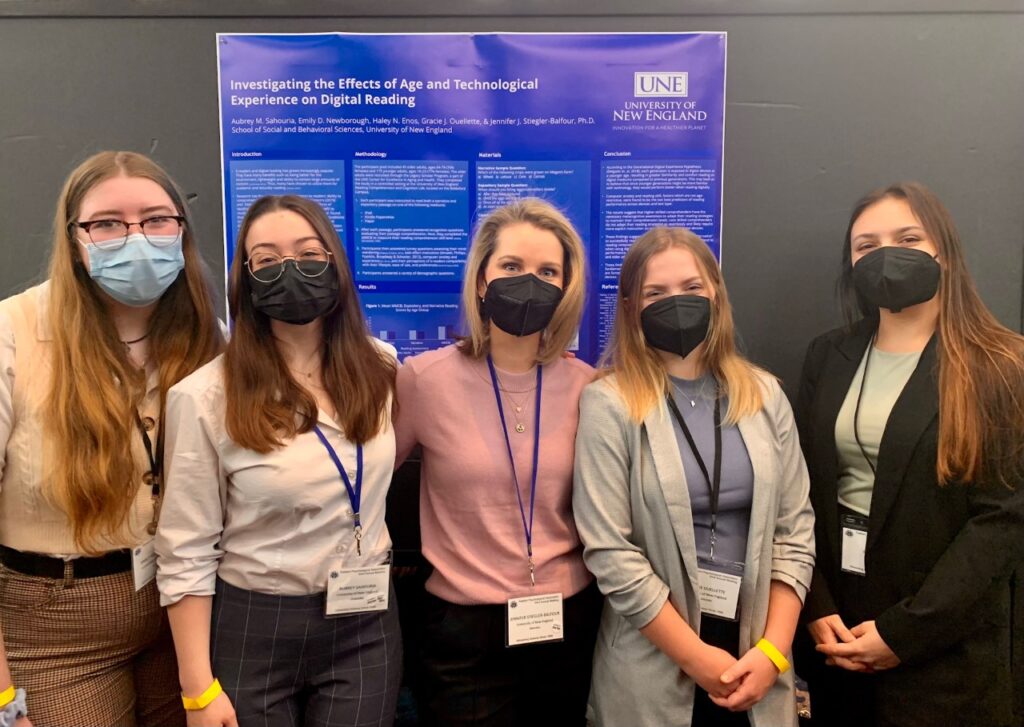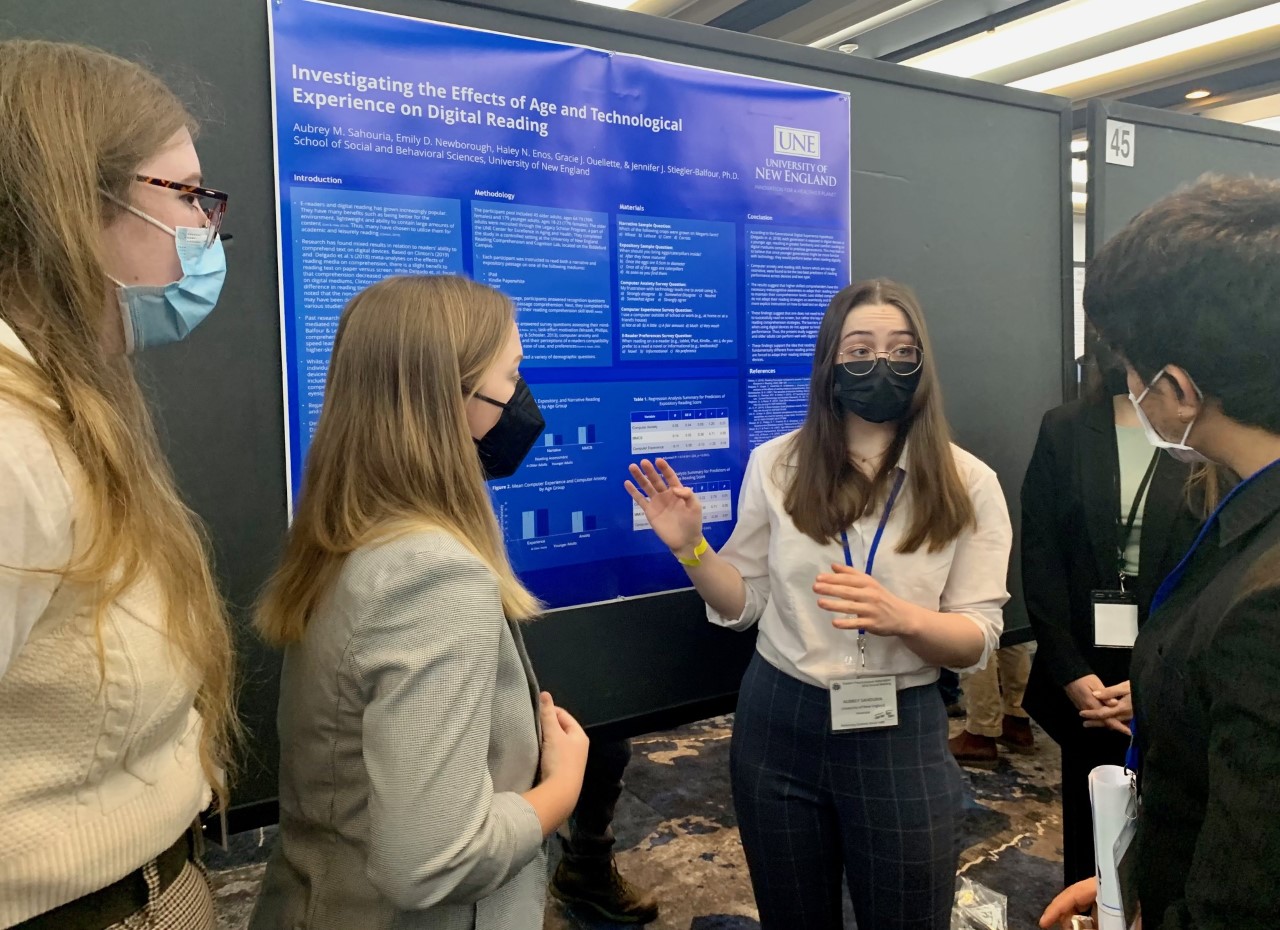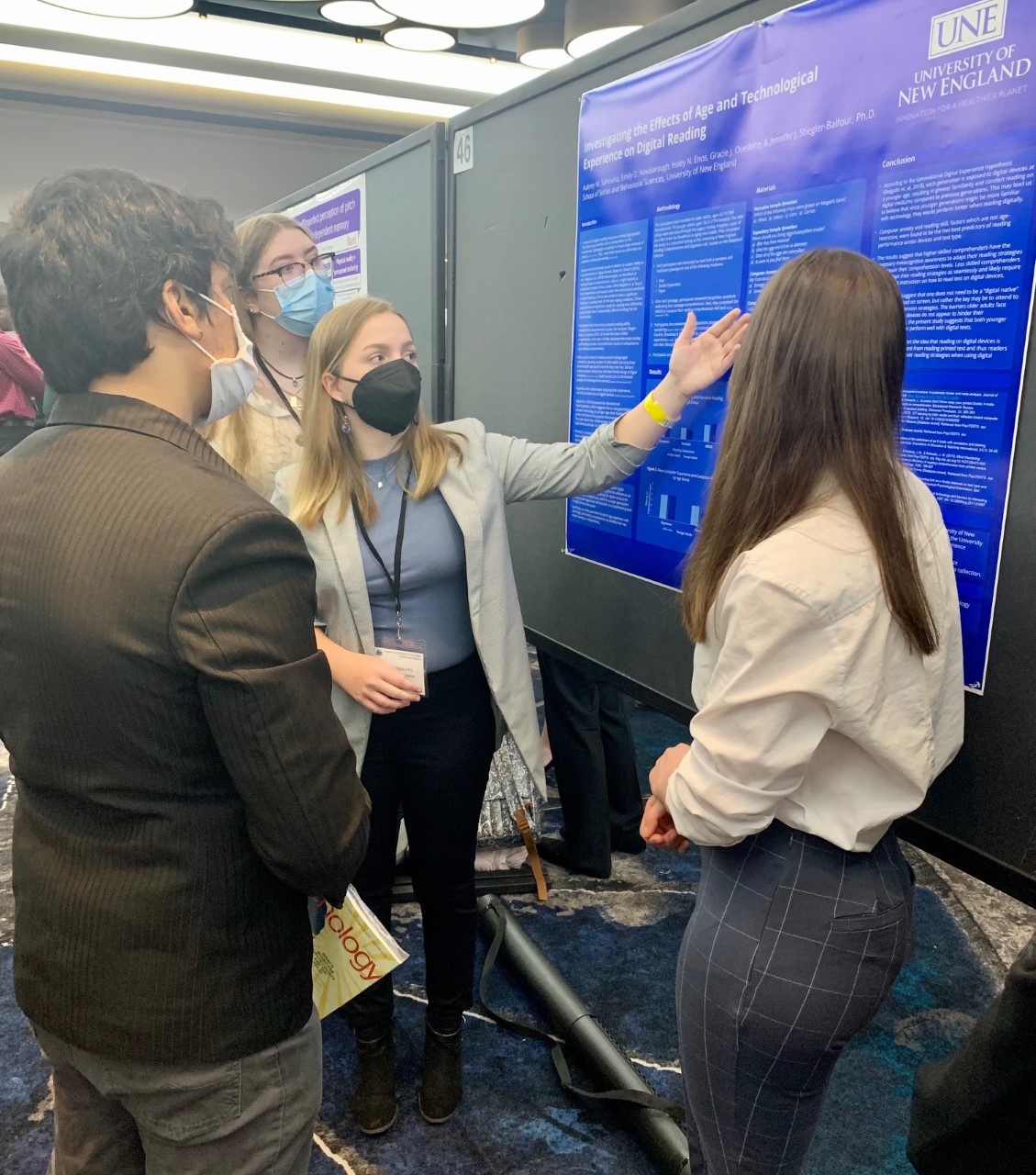
Jennifer Stiegler-Balfour, Ph.D., associate professor and assistant academic director in the School of Social and Behavioral Sciences, along with research assistants — Aubrey Sahouria (Neuroscience, ’22), Emily Newborough (Psychology, ’23), Haley Enos (Psychology, ’23), and Gracie Ouellette (Psychology, ’24) presented new research at the 93rd annual Eastern Psychological Association (EPA) conference on March 4.
The conference was held at the Marriott Marquis in New York City — the first EPA conference held in-person since the start of the COVID-19 pandemic.
Each year, the EPA conference creates a forum for members to present and share the latest advances in professional and scientific work with their peers. Members span professions across the discipline, including clinicians, neuroscientists, experimental psychologists, and applied psychologists in private practice, industry, and the military.
Sahouria, Newborough, Enos, and Ouellette presented research conducted with Nicole Martin (Psychology, ‘21), Genna Companatico, B.A. ’20 (Psychology), and Stiegler-Balfour on the differences in reading comprehension for both older and younger adults on texts presented on e-readers (e.g., iPads and Kindle Paperwhites) and traditional print. In the study, reading performance was examined across both narrative and expository passages on these mediums. The study found a significant effect of computer anxiety on both older and younger adults’ reading scores.
While expository texts are more taxing than narrative texts, the effects of computer anxiety were even more pronounced for narrative texts. Overall, the study found that the most significant predictor of reading performance across mediums was reading comprehension skill level, suggesting that a person does not need to be a “digital native” to successfully read on screen. Rather, the findings show that reading on digital devices is somewhat different from reading printed texts, and therefore the takeaway is to promote successful reading strategies that are adaptable to all reading mediums.


“It has been incredibly rewarding to present our lab’s work in person again,” commented Sahouria. “I was fortunate enough to present on-site before COVID-19 hit, and I could think of no better way to bring my undergraduate conference experiences to a close than by presenting with all of my fellow research assistants in the Big Apple. I’m incredibly proud of us all.”
Newborough added, “This was my first time being able to present at a regional conference since COVID-19 began. It has been an amazing experience to be surrounded by other undergraduate students and professionals who are as passionate about psychology as I am, as well as being able to see their posters and ask them questions in-person again.”
Enos echoed Newborough’s sentiment.
“After one full year of being a part of the Reading Comprehension and Cognition (RCC) Lab, it was so great to be able to attend an in-person conference together, where we could experience a professional environment and interact with people face to face,” she explained. “It was so rewarding to interact with each person who came up to visit our poster, with each of them having different interests and prior knowledge on the topic. It really made for some thought-provoking conversations!”
Ouellette said that, as the newest member of the lab, the EPA conference was her first in-person research conference.
“I came into the lab last semester with all of our presentations being presented online, besides UNE’s Fall Research Symposium,” she said. “EPA was my first larger-scale conference experience, and it was an amazing opportunity to get to present to so many individuals with varying professions across the discipline gathered in New York City. It was especially rewarding to hear their feedback and engagement with our study face to face!”
Funding for the research was made possible through the UNE College of Arts and Sciences (CAS) Summer Undergraduate Research Experience (SURE) and UNE’s Center for Excellence in Aging and Health. Funding for travel was made possible through the support of the Undergraduate Student Government Club, the School of Social and Behavioral Sciences, and the CAS Dean’s Office.
